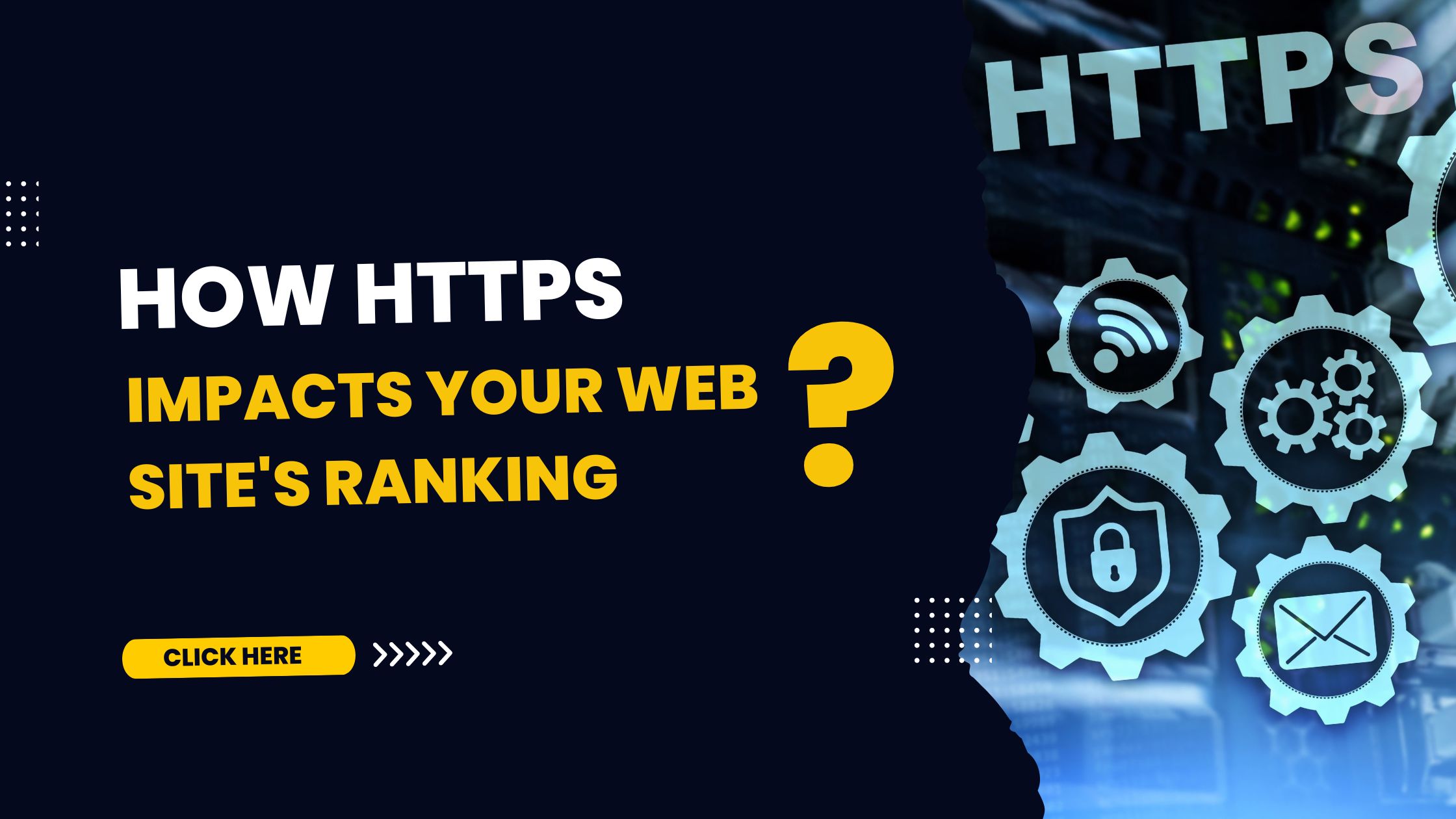While using the Internet you might have come across an error that is thrown by some websites “Your Connection is Not Secure “ or “Authentication Error.”
Do you wonder why?
These issues are typically caused by the absence of HTTPS or an improperly configured SSL certificate.
In the dynamic field of online business and digital marketing, search engine optimization (SEO) is a vital aspect for any website looking to gain visibility and reach out to a large number of audiences. Google and other search engines have continuously cultivated their algorithms to provide users with the best search results. One such algorithmic update that has influenced SEO is the integration of SSL certificates and the promotion of HTTPS.
This article centres around the relationship between SSL and SEO and how HTTPS impacts a web site’s ranking.
What is SSL and HTTPS?
The Secure Sockets Layer (SSL) represents standard security technology that facilitates the creation of an encrypted connection between a server and a client. By incorporating SSL security, the transmission of sensitive data, including credit card numbers and financial information, is safeguarded from interception or alteration while it is being exchanged between the two systems. The primary purpose of SSL is to thwart unauthorized users from gaining access to, reading, or tampering with any personal information .
HTTPS (Hypertext Transfer Protocol Secure) is a secured version of HTTP (Hypertext Transfer Protocol), ), the conventional method of transmitting data across the internet through a client-server model .HTTPS ensures an additional layer of security by encrypting all data exchanged between the browser and the server using an encryption protocol called Transport Layer Security (TLS), preceded by Secure Sockets Layer (SSL).
Google’s Push for HTTPS
Recognizing the importance of online security and user privacy, Google has been supporting a more secure web by encouraging website owners to apply HTTPS. To prioritize user safety, Google made SSL and HTTPS a ranking factor in SEO.They announced that secure sites would receive an incremental ranking improvement. While the first impact was relatively small, Google later increased the importance of HTTPS as a ranking signal.
The SEO Impact of HTTPS
- Ranking Boost: Websites with HTTPS receive a slight ranking boost in search engine results compared to their HTTP equivalents. This boost can still provide a competitive advantage over competitors who have not yet implemented HTTPS.
- Trust and Credibility: HTTPS adds an extra layer of trust and credibility to your website. When users see the padlock icon and “Secure” in the address bar, they trust your site with their sensitive information, leading to increased conversions and reduced bounce rates.
- Referral Data: When a protected website links to an unprotected HTTP site, the referral data is usually lost, showing the traffic source as “direct.” However, with HTTPS to HTTPS referrals, the referrer data remains perfect, providing meaningful revelations for SEO and marketing attempt,
- Mobile Optimization: With the growing influence of mobile devices, having an HTTPS-enabled site is very important. Secure connections are especially significant for mobile users, as they often connect to public Wi-Fi networks, making them more open to security threats.
- Improved User Experience: Page loading speed is a vital factor in SEO, and HTTPS can increase the overall performance of your website. Modern browsers give importance to secure connections, which can lead to faster loading times and improved user experience.
- Avoiding “Not Secure” Warnings: Web browsers now show warnings for non-secure websites, notifying users about potential risks. This can create an adverse impression, leading users to leave the site at once, negatively affecting your exit rate and dwell time.
- Future-Proofing: As the internet moves towards a more secure standard, HTTPS will become the standard. By adopting HTTPS ensures that your website stands out in the competition.
Conclusion
SSL and HTTPS play a significant role in search engine optimization. Google’s commitment to a safer internet has made HTTPS an important ranking signal, delivering manifold advantages to websites, including a slight ranking boost, increased user trust, improved user experience, and better mobile optimization.
Google’s commitment to a safer internet has led to the integration of HTTPS as a ranking signal, which provides websites with numerous benefits,
Implementing HTTPS should be a priority for website owners who want to increase their online visibility, maintain credibility, and provide a safe and secure browsing experience to their users. While the initial switch over may require some effort and investment, the long-term advantages, including better search rankings and increased user engagement, make it truly worthy.Adopting SSL certificates and moving to HTTPS is a vital step towards providing a secure and smooth browsing experience, ensuring the future success of your website. So, it’s high time to secure it with an SSL certificate and make the move to HTTPS.
“Step into a Safer Web: Get SSL Certified and Go HTTPS!”




